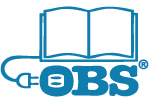The following paper by Laura Fillmore was accepted for publication by Common Ground in March 2008 (she serves on their Board, and has presented at their Book Publishing Conference).
The Chinese man stands alone in the road, apparently stopping a parade of approaching tanks. This photograph from Tiananmen Square’s spring of 1989, taken by AP photographer Jeff Widener, first woke us up to the power of the Internet, back before most people even knew there was an Internet. First-person, real-time accounts of what sounded like a massacre of students in Beijing began appearing on Martial Arts Listservs. The eyewitnesses didn’t work for the New York Times or CNN—they were university students who suddenly had a megaphone whose sound reached around the globe. Even their government couldn’t turn the Internet off; their voices couldn’t be censored, sold, or silenced. We had entered an age where the news belonged to any One Man who had access to an internet-worked computer and knew how to type.
The “One Man” poster hangs on the office wall at Open Book Systems (OBS) in Rockport. I ordered the poster in 1989, on the Internet, but paid offline, with a check, because back then, it was illegal to buy and sell anything on the Internet. Acceptable Use Policies (AUPs) reserved the vast power of our instantaneous and freely accessible global network of networks for research, science, and government communications. “Wild and woolly,” they called it. Ungovernable. Unstoppable. Infinitely expansive. It was a free and open frontier gatekeepered by geeks, librarians, and academics. No one would dare to so much as e-mail an invoice using the new Internet, polluting its packets with talk of money. Back then, there was no spam; every e-mail had a familiar FROM line. Even though anonymity was possible, most power users around the world knew each other, and observed a definite etiquette. “You’ve got mail” was a gratifying state to be in.
When the Information Highway opened for business in 1992, things changed. Big players like L.L. Bean and Amazon started selling products and clearing credit cards online, then eBay turned the world into a floating-price bazaar. The early doubts whether people would use their credit cards online proved to have little substance; people not only bought and sold online, but moved their personal banking into cyberspace. With the dawn of e-commerce, spammers started in earnest, glutting our mailboxes with unsolicited come-ons for mortgages and penis enlargements, Vioxx and academic degrees. In the new e-commerce space, we can follow the money and discover what looks like the flip side of the almost innocent network of networks of 1989, protected by its AUPs.
Not too long ago, Google, the world’s leading search engine, announced a business deal with the Chinese Government to release a censored Chinese version of its proprietary search engine, which at once captures a searcher’s keystrokes as he enters in search terms, records the unique Internet Protocol (IP) address of his machine, and also controls the displayed search results. If you search on the term “Tiananmen Square” in the U.S., the search results bring pictures of tanks and a pointer to the One Man (a.k.a. Tank Man) photograph; make the same search from within China, where the government is trying to control the Internet, and you see a peaceful park scene.
At first, it is difficult to understand why Google, the company that promised to do no evil, has taken these steps, which appear to be clearly against at least three tenets of their corporate philosophy posted at
http://www.google.com/intl/en/corporate/tenthings.html:
4. Democracy on the web works.
6. You can make money without doing evil.
8. The need for information crosses all borders.
On one hand, it’s a business deal, and as a publicly traded company, they owe it to their shareholders to maximize profits. A cynic might suggest that Google profits come at the expense of the freedom of speech exercised by the students in 1989, as symbolized by the One Man photo. But on the other hand, one company’s actions can’t change the architecture of the Internet, and perhaps Google programmers better than most people understand that, like water and air, information does want to be free, despite their best efforts. Content may leak around the edges of the miles of secure Chinese Google search code. By using variant spellings, for example, a savvy Chinese with the desire to communicate can get the same search results for “Tiananmen Square” as a Google user in the U.S. And so we learn once again that, even though the Acceptable Use Policies have lost their sway and e-commerce is here to stay, still, the very open architecture of the Internet continues to defy the efforts of those trying to limit, censor, or contain its content.
